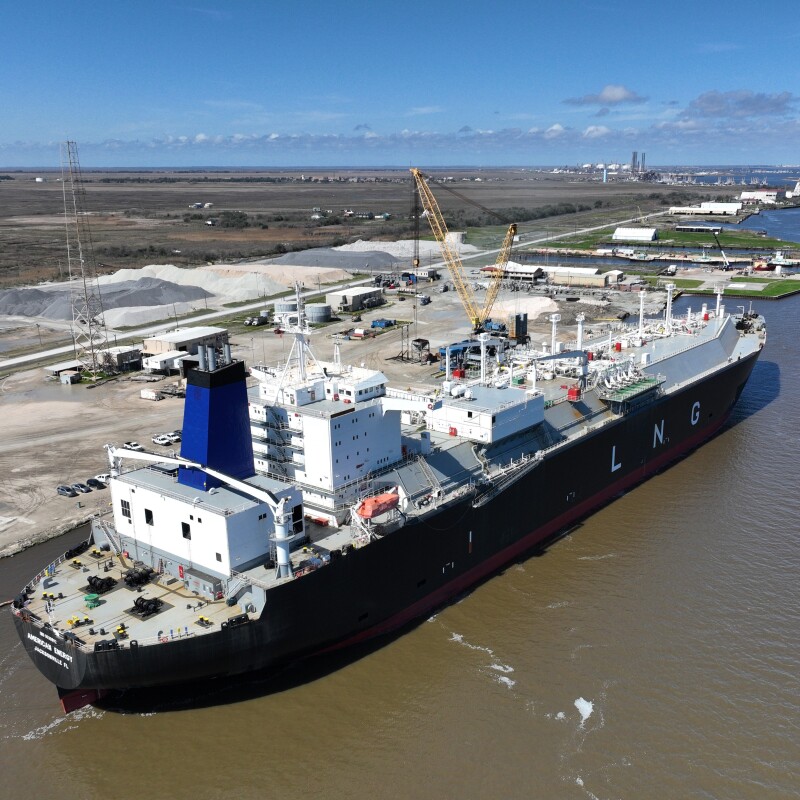Crowley’s new liquefied natural gas (LNG) carrier highlights the need to update the Jones Act. The ship will carry Gulf Coast LNG to Puerto Rico under a long-term supply contract to power generators for the island’s challenged electricity grid. It will deliver cheaper domestic gas to an island dependent on expensive, imported LNG.
“The entry into service of American Energy marks a significant step for fuel supply reliability in Puerto Rico for our energy grid, which will greatly benefit our people,” said Puerto Rico Gov. Jenniffer González-Colón. The ship’s 130,400-cu.-meter capacity will provide enough LNG with each voyage to serve 80,000 homes for a year.
The step is significant for Crowley, a privately held, U.S.-owned and -operated logistics, marine, and energy solutions company, and a milestone for the domestic shipping industry.
The 900' American Energy was previously the Liberian-registered Intan (formerly the Puteri Intan, built in 1994). Crowley purchased the 31-year-old steam turbine vessel, refurbished it, and reflagged it to work under a 1996 provision of the Jones Act. The provision reads: “May issue a certificate of documentation with a coastwise endorsement for a vessel to transport LNG or liquified petroleum gas to Puerto Rico from other ports in the U.S., if the vessel is a foreign-built vessel built before Oct. 19, 1996.”
Puerto Rico receives an exemption but must rely on an aging ship, while New England continues to pay high prices for foreign LNG each winter. Without a similar waiver, delivering cheaper domestic gas to New England would require building a costly U.S.-flagged and -crewed LNG carrier. Cheaper gas but a higher transportation cost solves nothing.
Anticipating a rise in LNG imports, the U.S. built 16 LNG carriers in the late 1970s and 1980s, but regulatory changes and the shale gas boom largely eliminated the need for imports — except in New England. Today, only a few of those carriers remain in operation.
The Trump administration recognizes the need for fundamental reforms and stimulus to revive the U.S. maritime industry. Limited shipbuilding capacity poses a national security risk, as building Navy warships takes years — leaving the U.S. trailing China’s expanding fleet. A minuscule commercial fleet leaves the U.S. vulnerable to supply boycotts and extortion during conflict. These unacceptable risks can only be rectified over time and with a concerted effort to rebuild the U.S. maritime industry.




